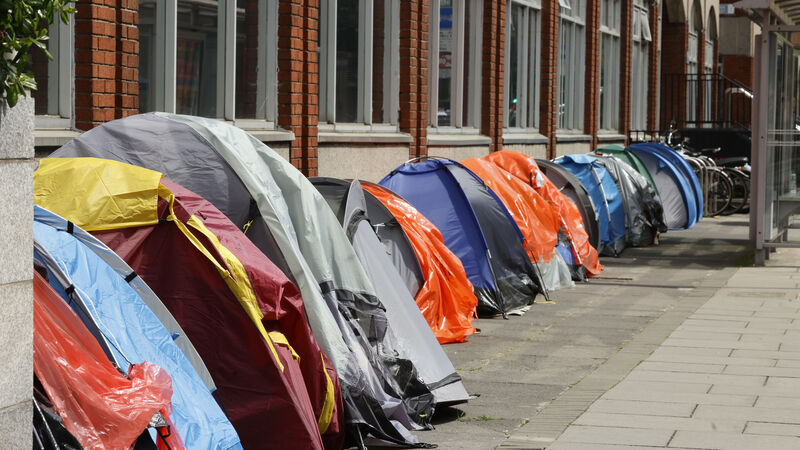State disputes IHREC's right to pursue parts of asylum seeker challenge

This week, IHREC’s lawyers told the court there was renewed urgency to the case as the number of international protection applicants left homeless has risen to more than 600. File picture: Arthur Carron/Collins Photos
Lawyers for the State dispute the entitlement of the Irish Human Rights and Equality Commission (IHREC) to pursue certain aspects of its challenge to the Government’s failure to provide accommodation to all men seeking international protection here.
Chief State Solicitor, Maria Browne, acknowledged the organisation has an “undisputed statutory entitlement” under section 41 of the 2014 IHREC Act to bring representative proceedings concerning the human rights of a person or class of people in certain instances.











